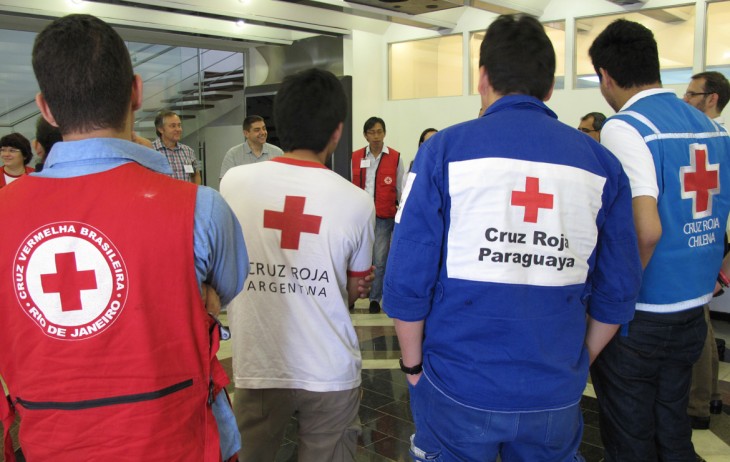RIO DE JANEIRO, BRAZIL – The International Federation of Red Cross Societies (IFRC) warned Friday that the pandemic “is far from over in the Americas,” the region with the highest incidence of Covid-19 cases that has now reached its highest peak in deaths.
“The Americas currently have one of the highest daily death rates in the world and, in Latin America alone, more than one million people have lost their lives to Covid-19. This represents one-third of deaths worldwide,” the Red Cross said in a statement released Friday, May 28.

LATIN AMERICA: ONE MILLION DEATHS AND 10 COUNTRIES AMONG THOSE MOST AFFECTED
The World Health Organization (W.H.O.) data indicate that the Americas have already registered 66.8 million cases and 1.6 million deaths. Of this total, 32.3 million infected and 1 million deaths correspond to Latin America.
“Newly confirmed cases in the region continue to increase; 10 of the 15 countries reporting the highest number of Covid-19 cases worldwide are in Latin America and the Caribbean. Uruguay, Argentina, and Costa Rica top the list, followed by Trinidad and Tobago, Suriname, and Brazil, where cases are spiraling,” the Red Cross said.
Furthermore, according to the Inter-American Development Bank (IDB), Latin America reports 162 deaths per 100,000 inhabitants, compared to a world average of 46 per 100,000 inhabitants.
COLLAPSE AND SLOW VACCINATION
“Health systems are at real risk of imminent collapse in many countries, such as Brazil, Argentina, and Uruguay, where cases and deaths are at their highest peak since the beginning of the pandemic. Alarm bells are also ringing in Paraguay, Colombia, and Bolivia,” says Pedro Porrino, Emergency Health Coordinator for the Red Cross in the Americas.
According to the agency, this increase reinforces the need to maintain and affirm public health and protective measures, “especially since the current availability of vaccines is insufficient and the pace of vaccination in most of the continent remains dangerously slow.”
Martha Keays, IFRC’s regional director for the Americas, also warned that “five months after the start of vaccinations worldwide, fewer than two out of every thousand vaccines have been administered in the poorest countries of the Americas.”
“Leaving the most vulnerable behind in vaccination processes is a moral and public health catastrophe. Millions of lives depend on efforts to address disparities between and within countries,” he added.
According to the Pan American Health Organization (PAHO), 474.5 million doses have been administered in the continent. Still, the gap between countries remains, with the United States accounting for almost half of the doses administered in the region.
In addition, the pandemic has rebounded in the region: last week, more than 1.2 million new cases of Covid-19 and 31,000 deaths were reported in the Americas.
“These figures have remained unchanged in recent weeks, highlighting a worrying trend: cases and deaths are stabilizing at alarming levels,” PAHO Director Carissa F. Etienne stressed in her weekly report.
Increases in cases have been reported in Belize, Costa Rica, Honduras, and Panama, where intensive care unit (ICU) beds are at more than 80% of capacity.
In the Caribbean, Trinidad and Tobago declared a national emergency following a recent outbreak. Cuba continues to report a significant increase. St. Vincent and the Grenadines continues to experience spikes after their population was moved to shelters due to recent volcanic eruptions.
“In South America, new infections have declined in Chile, Paraguay, and Peru, but Uruguay, Argentina, and Brazil, after experiencing some improvement, are again seeing an increase in cases. Bolivia is reporting a dramatic increase in cases and deaths, and Guyana is experiencing its highest volume of cases and deaths since the beginning of the pandemic,” PAHO concluded in its weekly report.

